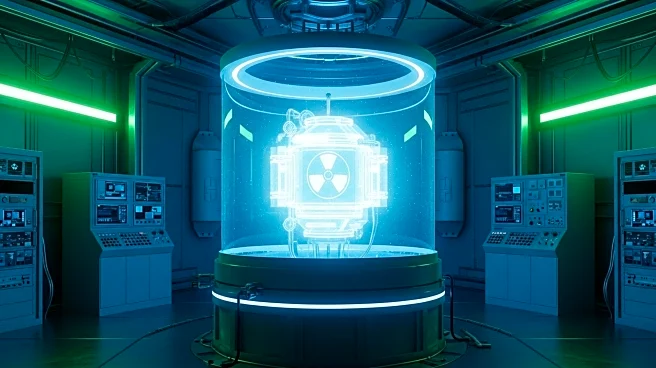What's Happening?
Iran's Supreme National Security Council has issued a warning that the potential reimposition of UN sanctions would halt Tehran's cooperation with the International Atomic Energy Agency (IAEA). The council, chaired by President Pezeshkian, emphasized that European nations' attempts to reinstate sanctions would have severe consequences for future negotiations regarding Iran's nuclear program. Iranian hardliners are advocating for withdrawal from the Nuclear Non-Proliferation Treaty (NPT) and some are calling for the development of a nuclear weapon in retaliation. The UN Security Council's failure to pass a resolution to prevent the reinstatement of sanctions has heightened tensions, with support for relief coming from China, Russia, Pakistan, and Algeria.
Why It's Important?
The potential reinstatement of UN sanctions on Iran could significantly impact international diplomacy and nuclear proliferation. If Iran halts cooperation with the IAEA, it may resume uranium enrichment, exacerbating regional tensions. This development could lead to increased instability in the Middle East, affecting global security and diplomatic relations. The geopolitical divisions highlighted by the support for sanctions relief from China, Russia, Pakistan, and Algeria underscore the complexity of international negotiations and the potential for further diplomatic rifts.
What's Next?
Without intervention from the UN Security Council, international sanctions on Iran are likely to be reinstated, leading to a complex scenario of diplomacy fraught with implications for nuclear proliferation and regional stability. The international community may need to address the potential consequences of Iran's actions, including its possible withdrawal from the NPT and the development of nuclear weapons. Stakeholders, including the United States and European nations, may need to engage in diplomatic efforts to mitigate the risks associated with Iran's nuclear ambitions.
Beyond the Headlines
The situation raises ethical and legal questions regarding nuclear proliferation and the role of international organizations in regulating nuclear activities. The potential withdrawal of Iran from the NPT could trigger long-term shifts in global nuclear policy and influence other nations' approaches to nuclear development. The geopolitical divisions and the failure of the UN Security Council to reach a consensus highlight the challenges of international diplomacy in addressing complex security issues.










